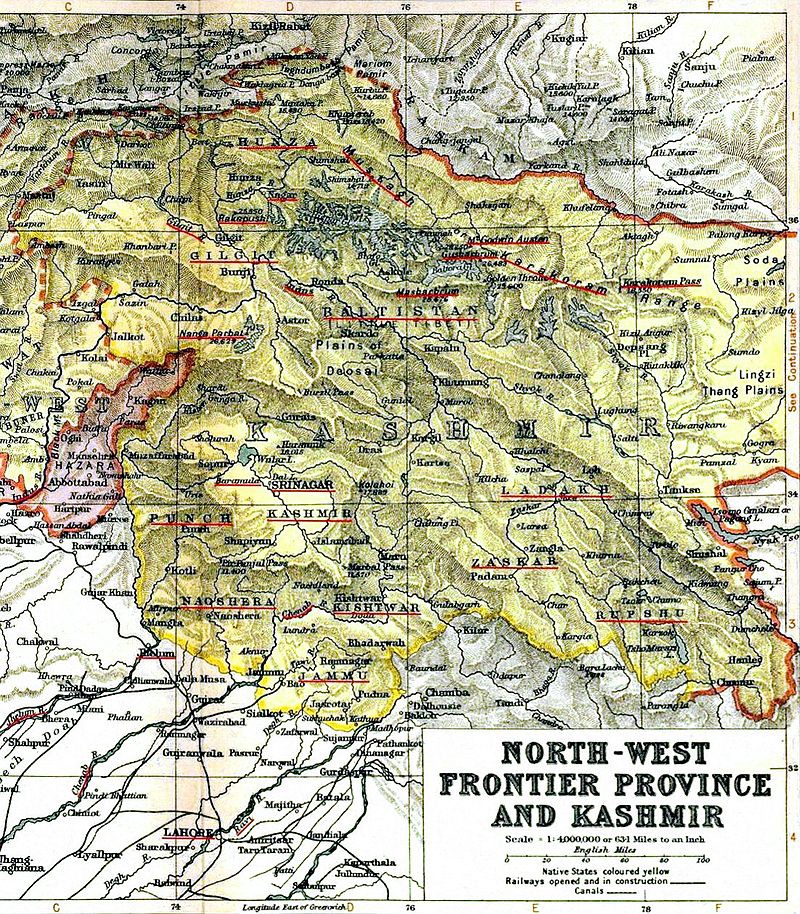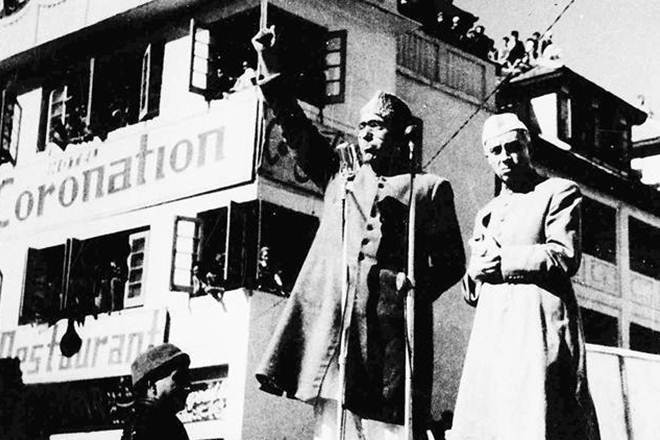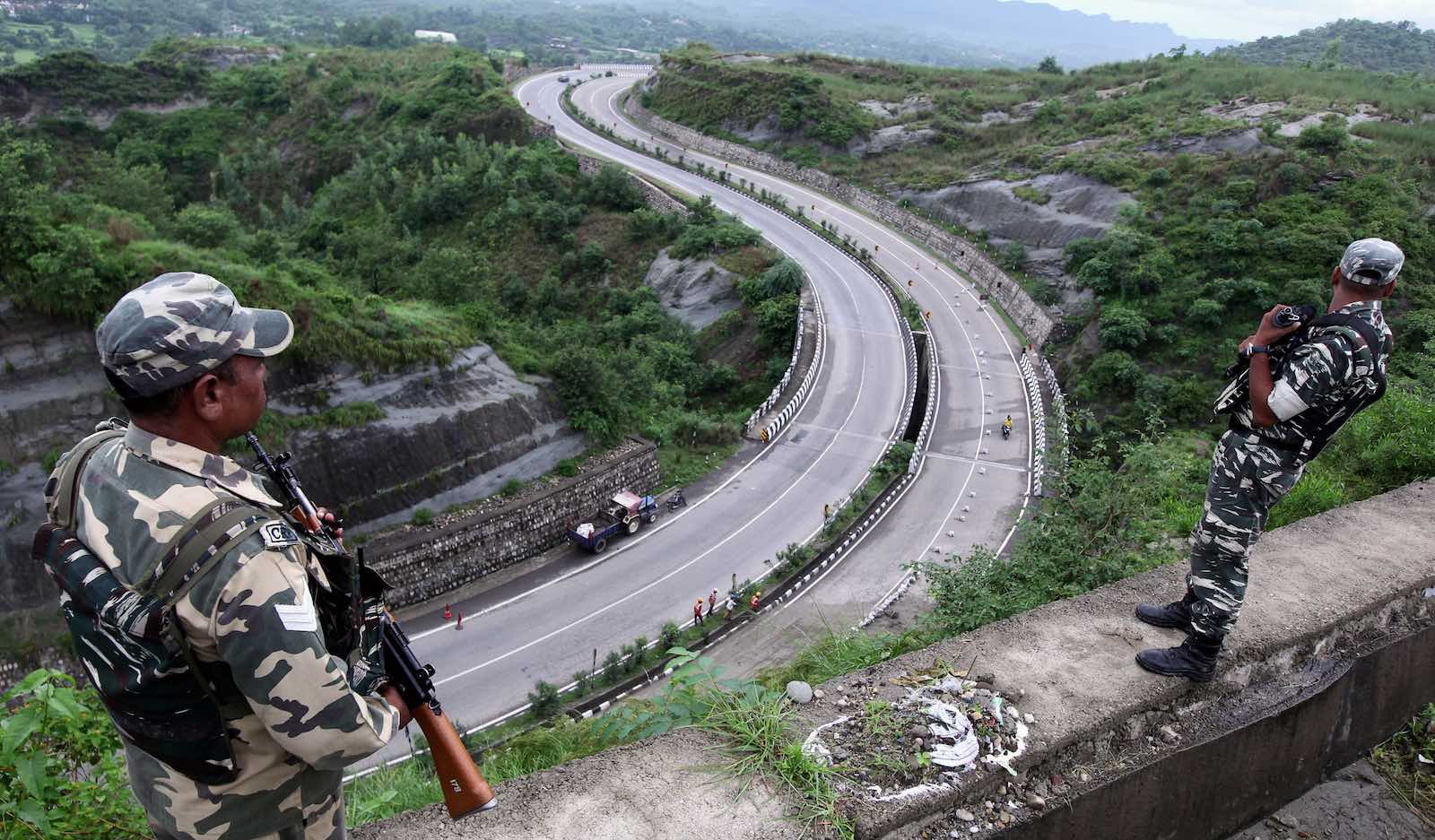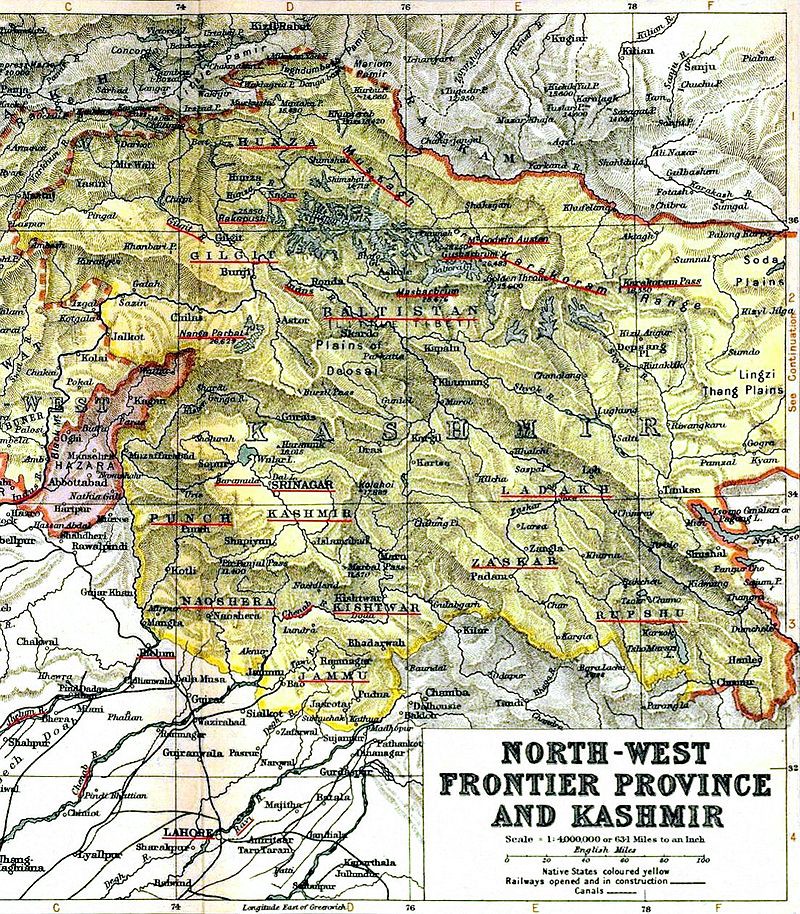The privileges given to Jammu and Kashmir were revoked recently by abolished Article 370 and Article 35, but the reason for them still exists.
Jammu and Kashmir in British India:

Jammu and Kashmir was one of the princely states of British India and had a Hindu maharaja. However, the majority of the population were Muslims. Jawaharlal Nehru, the first prime minister of India, was born in Jammu and Kashmir. Jammu and Kashmir is a strategic point for British India as it borders with Afghanistan which acted as a buffer with Soviet Russia. Jammu and Kashmir also shared borders with China, which was of trade interest to Britain.
Due to these geopolitical reasons, there was a discussion in the British India government to annex Jammu and Kashmir. This information was leaked by a journalist who hunted for details in the British India viceroy office garbage. When the news broke, Jammu and Kashmir maharaja personally went to London. He argued for his princely state of being an autonomous region. British India dropped the invasion plan. Had the journalist didn’t cover the news, Jammu and Kashmir problem which we face now might not exist, Also the border issues with Pakistan and China.
The Partition and Problem:

With the partition of the Indian subcontinent was decided in 1946, the fate of the princely states in British India hanged in the air. The sovereign states had only two options either to join India or Pakistan; there will be no independent country claims. Jammu and Kashmir were one of the three princely states that didn’t sign the instrument of annexation. As Pakistan got independence on August 14, 1947, problems started for Jammu and Kashmir. Several regions of Jammu and Kashmir split and joined Pakistan.
A group of militants from Pakistan entered Jammu and Kashmir. They were just a few kilometers from Srinagar, the capital of Jammu and Kashmir. Jammu and Kashmir maharaja appealed to India to help him. Still, Lord Mountbatten, the viceroy of India and Jawaharlal Nehru, the prime minister of India, insisted that the maharaja needs to sign the instrument of annexation. Only after the maharaja consents, the Indian army can enter Jammu and Kashmir. Lord Mountbatten went behind Jawaharlal Nehru and instead the maharaja to ask for special privileges to join India. Jawaharlal Nehru accepted the demands of the maharaja while Saradar Vallabhai Patel opposed it. Sardar Vallabhai Patel, considered as Bismarck of India, brought 567 princely states together, and none of them got any special privileges like Jammu and Kashmir. Lord Mountbatten planned to keep the Jammu and Kashmir issue in the limelight and to deny India’s access to central Asia.
Special privileges:

When Sardar Vallabhai Patel was on an overseas trip, Jawaharlal Nehru enacted Article 370 into India’s constitution. The special privileges were
- Jammu and Kasmir had the post of prime minister until 1965. Technically, India had two prime ministers from 1947 to 1965.
- Jammu and Kashmir enjoyed a special status in terms of land and property. Indian Citizens from other states of India cannot buy property in Jammu and Kashmir.
- Except for Military, Finance, and Infrastructure in no other department can the Indian government interfere with the Jammu and Kashmir state
- The state assembly tenure is six years compared to 5 years in other states of India.
- Jammu and Kashmir had a separate flag and hoisted it along with the Indian flag.
- Jammu and Kashmir’s citizen clause of Article 35 states that people of Jammu and Kashmir origin are the citizens of Jammu and Kashmir. Any Indian citizen who moved to Jammu and Kashmir cannot become a part of the Jammu and Kashmir population.
- If a Kashmiri woman married a non-Kashmiri, she would lose her Kashmir citizen rights. The same is not applicable for Kashmiri men.
- Except for the wartime emergency, no other emergency can be inforced on the state of Jammu and Kashmir.
- Any law passed by the Indian parliament needs to be accepted by the Kashmir state assembly to come into existence.
- The governor of Kashmir needs to be approved by the Chief Minister of Jammu and Kashmir.
- In case of a national emergency, India will come under president rule. Still, Jammu and Kashmir will come under the local governor rule.
The special status was given to Jammu and Kashmir as a concession to join India instead of Pakistan. The Indian government recently revoked the article and split the region into Jammu, Kashmir, and Ladakh. The protest against the split still rages in the area. The case between India and Pakistan on the Jammu and Kashmir issue still rages in the United Nations corridor.
Originally publsihed in https://medium.com/history-in-bytes/when-india-had-two-prime-ministers-from-1947-to-1965-f08e458fdb70
